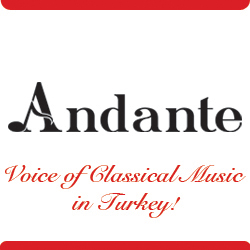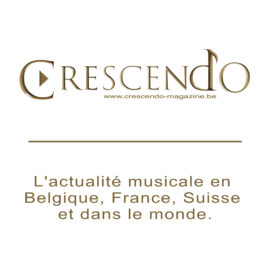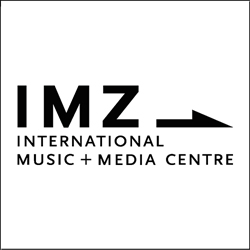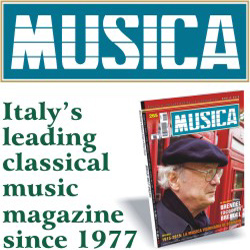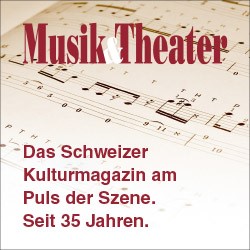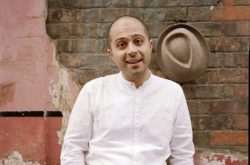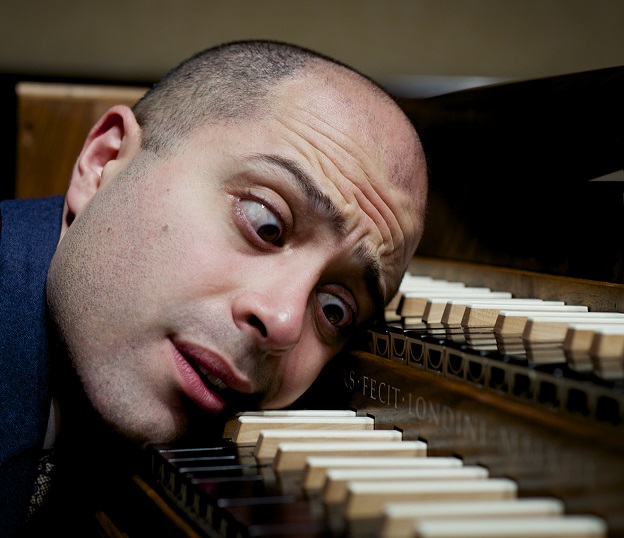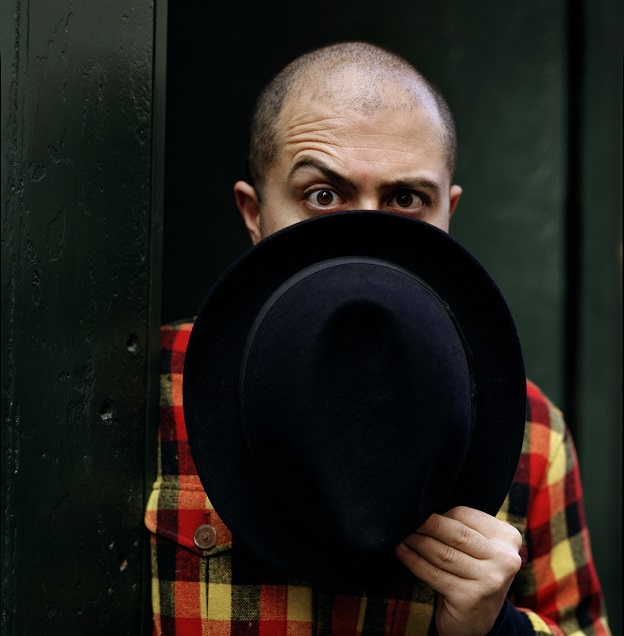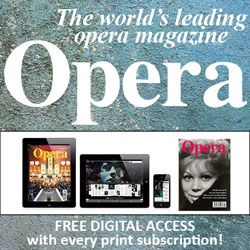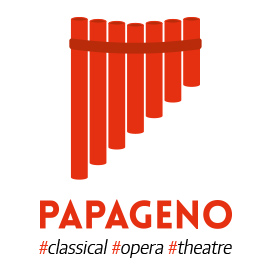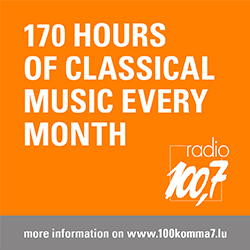Iranian-American harpsichordist Mahan Esfahani (Tehran, 1984) won an ICMA 2023 in the Category Baroque Instrumental with his CD Bach: Italian Concerto – French Overture (Hyperion). Eduardo Torrico from the Spanish magazine Scherzo, member of the ICMA Jury, made the following interview with the artist.
Mahan Esfahani never leaves anyone indifferent. Neither when he plays music nor when he speaks. A student of Musicology and History at Stanford University, it was precisely there where he received his first harpsichord lessons from Elaine Thornburgh. From there he went to Boston to further his musical training with Peter Watchorn. He completed it in Prague, under the auspices of the historical Czech harpsichordist Zuzana Ruzickova. He has lived in Milan and London (in this city, for ten years), before taking up residence in the aforementioned Prague. Although the term « fixed residence » is somewhat relative, since he is permanently traveling around the world to give concerts.
You have recently performed in a concert in Trento with La Scintilla, which has caused me some surprise because you rarely play with historicist orchestras.
I play a lot of Bach with orchestra, but, as you say, they are modern orchestras. It is an artistic choice. The Scintilla is a special case, since I have a close relationship with its conductor, Riccardo Minasi, whom I consider a great musician, regardless of whether that orchestra plays with original instruments. For me the important thing is musicality and quality, not the instruments. At the Barbican Center in London I recently did a Bach’s Musical Offering. For this work you need a flute, a violin and a basso continuo. I asked for Richard Boothby on the basso continuo, who is an experienced viola da gamba player. But then I asked for Adam Walker, principal flute of the London Symphony Orchestra, and Antje Weithaas, who plays the modern violin. The reason is quite simple: these are performers with whom I like to play chamber music, and I do not pay attention to other issues. My opinion is that I should not evaluate whether the instrument is modern or antique, because my vision is much broader. It is merely a choice, like someone who chooses to be religious or not to be religious.
Does this personal choice of yours have anything to do with the fact that, besides playing Renaissance and Baroque music with the harpsichord, you also play modern and contemporary composers such as Ligeti, Saariaho or Takemitsu with this instrument? It is not something normal among today’s harpsichordists.
To be honest, I don’t pay much attention to what is normal among today’s harpsichordists. But if you tell me it’s not normal, I believe you. Of course I love baroque and renaissance music. I think they are fantastic, but I don’t want to set limits for myself. When I recorded for Hyperion the CD The Passinge Mesures, with works by English virginalists, I realized that my sister, who is a pianist, could play those works without resorting to a harpsichord or a virginal. I believe, on the other hand, that those who love early music are open-minded and don’t care so much about the instrument used to play that music.
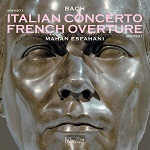 Your latest CD dedicated to Bach won the ICMA Award as best instrumental baroque album 2023.
Your latest CD dedicated to Bach won the ICMA Award as best instrumental baroque album 2023.
I have already made the integral of Bach’s harpsichord works live, over twenty-four concerts that took place at the Wigmore Hall in London. In other words, I have all of Bach’s harpsichord music at my fingertips, which I think is something that no other harpsichordist can say right now. I have played every single note. The Hyperion label has confirmed to me that, if I want to, we will undertake the integral. If nothing unusual happens, my intention is to record next spring the English Suites and, probably, the first book of the Well-Tempered Clavier.
Would it be far-fetched to say that Bach is the light of his musical life?
That’s an apt way of describing it, a very good metaphor. Yes, of course it is. For me Bach is like when a ship sails in the dark and is guided only by the light of a lighthouse. If you find that light, there is nothing in the darkness, no matter how strong it is, that prevents you from reaching the right port. Light always attracts light, even if it is small.
What does Bach really mean to you?
Many things have been said and are said about Bach, some of which make no sense at all. For example, that claim that Bach was a universal musician is really stupid. If he had been universal, how do you explain that people in the 18th and 19th centuries ignored his music? Of course his music never disappeared, because there were small cultured sectors that kept Bach’s message alive. But, let’s not fool ourselves, the music Bach made was for God, not for a wide public, because Bach always performed in very small and closed circles. And when I speak of universality, I am referring to music that has been played everywhere and at all times without ceasing. I am still surprised by unknown things about Bach.
For example?
I am now working on a book about how much Bach owes to Handel’s music. And the conclusion is that he owes him a great deal. Not only does Handel have a profound influence on Bach, but Bach had a very positive opinion of Handel. The same as he had of Telemann, Palestrina or Frecobaldi. We even know now that Bach copied a score by the Spanish Renaissance polyphonist Cristobal de Morales. It is evident that Bach absorbed everything around him, and turned it into something of his own. There have been in the history of mankind many musicians, plastic artists or writers who have been inspired by others, so it is absurd to think that Bach was an exception in that sense.
Another nonsense that is often said about Bach is that he was not interested at all in the music being made in Dresden, for example. Heinichen’s or Hasse’s, to mention two names. But he was very interested in it. And not only was he, but he often performed it, as with concertos by Locatelli, Vivaldi or Albinoni. There are still many things to know about Bach. Without going any further, Bach the interpreter is a perfect unknown, because there are no testimonies as to whether he was a good interpreter or not; not only of his own music, but also of that of others. In my opinion, Bach drank from many sources when it came to his inspiration and he had a lot of respect for everything that surrounded him musically. That is why I reject the idea of a universal Bach, so widely accepted. And I also reject the image that he was an unpleasant person, or so many other things that are said about him. What appears in the music of a composer says a lot about what he was like as a person, and my deduction is that he was a human being solidly integrated in the world he lived in.
It is also said that Bach and his music are timeless?
That’s another thing that makes no sense at all. For me, Bach is completely temporary. Let’s be clear: someone who is the father of twenty-one children cannot be timeless in any way. What we know about the male Bach is that he liked to smoke, he liked to drink, he had a lot of children, and he was fat to boot. That is profoundly temporal. If he had lived in the 21st century, he surely wouldn’t have done any of that.
I’m very interested in the book you’re writing about Handel’s influence on Bach’s music, precisely because Handel is accused of being the great plagiarist in history.
I’m writing it with Jonathan Keates, who a few years ago published a book called Handel, the Man and his Music. The book revolves around a meeting between Bach and Handel that nearly took place in 1719. Bach walked a handful of miles on purpose to meet Handel in person, but in the end they never met.
It is sterile to argue about whether Bach was better than Handel, or vice versa. We are talking about the two greatest composers of the Baroque and, perhaps, of the history of music itself. Handel was the best known musician of his time and Bach never left those « very small and closed circles » you mentioned before.
I completely agree. A friend of mine, who is the editor of a music magazine, reminded me the other day that it was the birthday of the late English tenor Anthony Rolfe Johnson, and I suddenly remembered the recording of the oratorio Solomon, conducted by John Eliot Gardiner, in which he played and which I listened to so many times as a child. Specifically, the aria from Zadok Sacred raptures cheer my breast. I was nine or ten years old, but the way Handel handles the text in this aria is something that had a strong impact on me. Even today it only takes me two notes to immediately identify that aria. Handel is a giant, but the terrible thing is that for years and years I never took this composer seriously. Many argue that there is no comparison between Bach and Handel, but Handel was so great that, at least for me, I cannot imagine music without him. Perhaps I have discovered too late that he was a genius.
It is likely that we owe this pejorative judgment of Handel to Gustav Leonhardt, who always refused to play his music because he thought it was not good enough. He even reprimanded his students who were interested in it.
That is one of the many negative aspects of Leonhardt’s legacy to us. I’ve recently been working on a piece by Handel and the conclusion I’ve come to is that, to play it really well, you have to put in a huge dose of your own expressiveness. Look, I’m approaching my 40th birthday and in all this time I’ve dedicated myself to living the best I could: I’ve eaten, I’ve drunk, I’ve had fun… But one of the things I regret the most is that it took me a long time to realize who Handel really was. I say it again: he was a giant. I love his music. What’s more, I can guarantee you that, if he were to join the conversation you and I are having now, Bach would say exactly the same thing.
There are quotes from Bach, Mozart and Beethoven about Handel, and all three come to say that he was the greatest composer they had ever known. If Bach, Mozart and Beethoven said so, who are we to contradict them?
Of course. It would also be very interesting to ask Handel who he thought was the greatest composer. Or ask Frescobaldi. Or William Byrd. If we could have asked Byrd, I think he would have said it was Big Head. But, anyway, I am also convinced that, if Bach had not been rediscovered in the 19th century, the history of music would be very different from what it is now.
Since you mention Byrd and since we are talking about Handel, I ask you two very specific questions: do you plan to record Handel? And, given that this year marks the 400th anniversary of Byrd’s death, are you going to record more of his music or that of other virginalists?
As to the first question, definitely yes, although I don’t know when. As for the second question, no. And I will explain why: although I am very proud of the two recordings I made for the Musica Omnia label, it is music that unfortunately no one buys, which I think is terrible. On the other hand, without revealing more than I have to, I will tell you that among my most immediate projects is to record an album with music by Georg Anton Benda, who I think is a magnificent composer. I am also involved in an important project about Scarlatti, but I don’t know when that project will start either.
From Handel, the Eight Great Suites of 1720?
That’s the idea, because it’s wonderful music. Look, when I was about to record the Bach Partitas, the producer asked me how he should prepare, and I said, « During the week before you start recording, listen only to the Handel Suites. Don’t do more than that, don’t even look at the scores of the Partitas. But I need you to listen to the Handel Suites. »
You now live most of the year in Prague, but before that you lived ten years in London. I imagine that’s another aspect that makes you identify with Handel: two foreigners who arrive in London to start a new stage in their lives and are immediately accepted.
I’ll make a confession: when I lived in London, it was a city I hated. It was a stupid reaction, which I am still unable to explain to this day. During that period in England, I spent most of my time reading Kafka, Hrabal and other Czech writers. I often went to the Institute of Czech Culture and did other things like that. And it turns out that now, living in Prague, I go to the English Church, read Jane Austen and listen to music by Handel. It’s crazy, isn’t it?
Do you have more projects in mind?
Yes, one is a very philological project on Bach. Specifically, on the Partitas and the French Suites, two works for which there are no original scores. After checking numerous sources, I have prepared the edition of both works myself.
It is the eternal problem with Bach: many of his scores are copies made by his second wife or by several of his pupils. The Cello Suites, for example.
Exactly. It’s crazy, but more and more of Bach’s music is played every day and most people go to sources that are originals, believing that what they are doing is the historically correct thing to do. But, no, if you want to play authentic Bach, you have to do it in a philological way, not simply based on scores that are not autograph. And I am referring to both harpsichordists and pianists. It is something insane and unacceptable.
I have to admit that, in your last disc, your reading of the Capriccio sopra la lontananza del suo fratello dilettissimo is the most profound and emotional I have ever heard.
Do you want me to tell you something? That is the same feeling I have. And I will tell you who inspired me: before settling in Europe, I studied for some time in Boston with Peter Watchorn, who had been a student in Vienna of Isolde Ahlgrimm, the great Austrian harpsichordist. On one occasion, he made me listen to a disc that Ahlgrimm had recorded in the late 1970s, which included the Capriccio. I refused, because I thought it would be too naïve a recording. But in the end I did it: I was so impressed that I still remember every single detail of that recording. So much so, that I asked him to make me a copy of the record so that I could listen to it more times. It seems that Ahlgrimm’s recording worked very well because before going into the studio, the people involved in it had eaten a good meal. Well, when we were about to record, I asked us all to have breakfast together, following the example of Ahlgrimm and his collaborators, and we all had fried eggs, sausages and bacon, a real English breakfast! When breakfast was over, I said: « Boys, we are ready, let’s start now with Bach’s Capriccio! So what you hear there is a stomach full of food.
A nice tribute to Bach, who apparently was a glutton.
It’s certainly a nice tribute.


